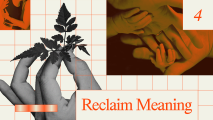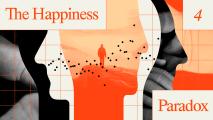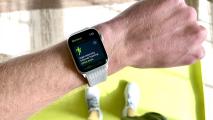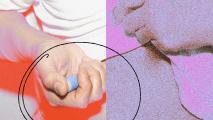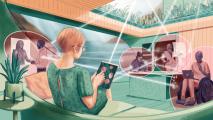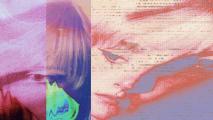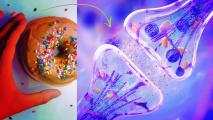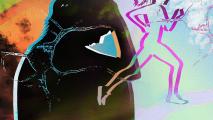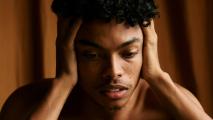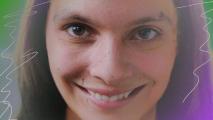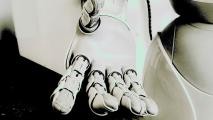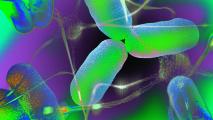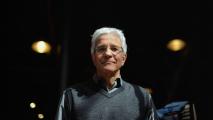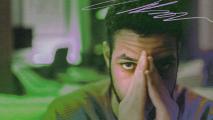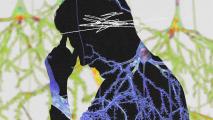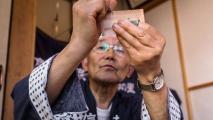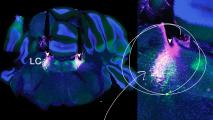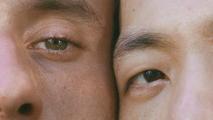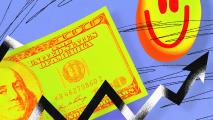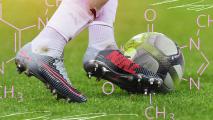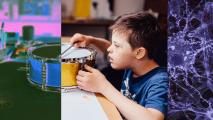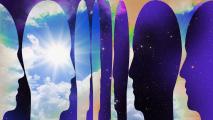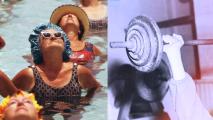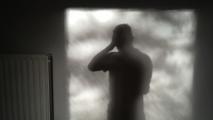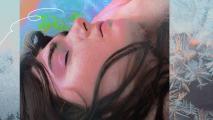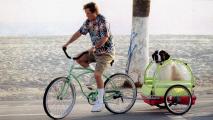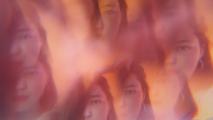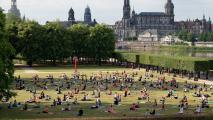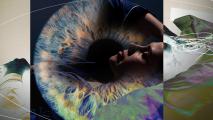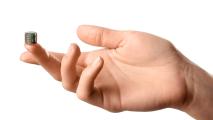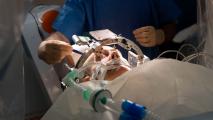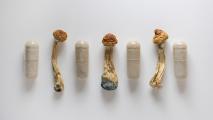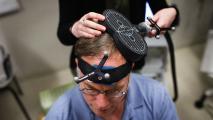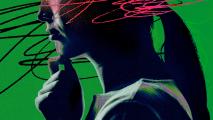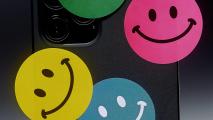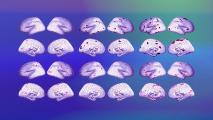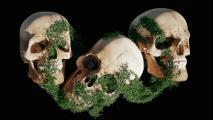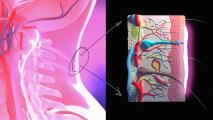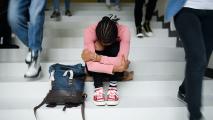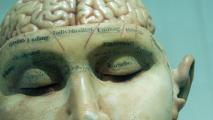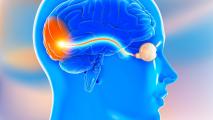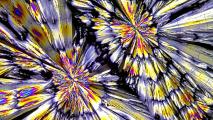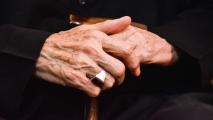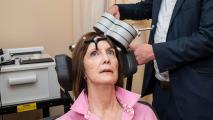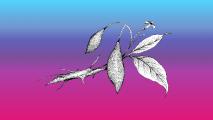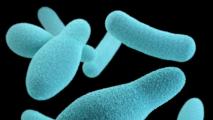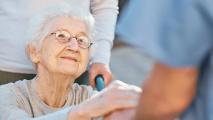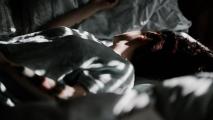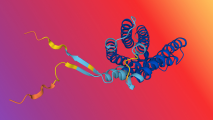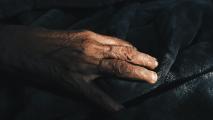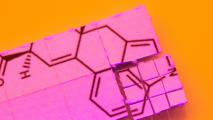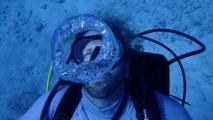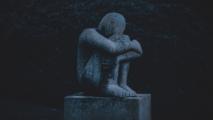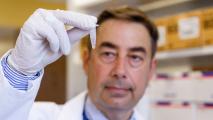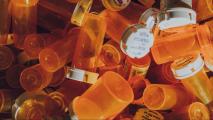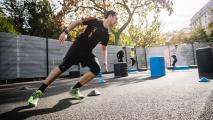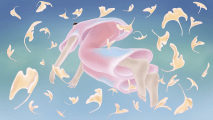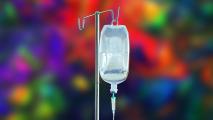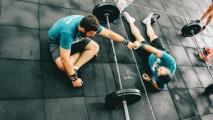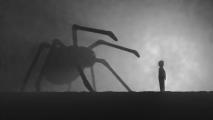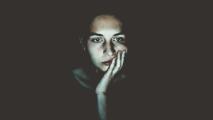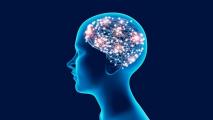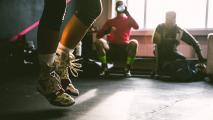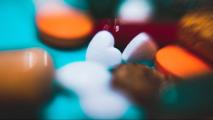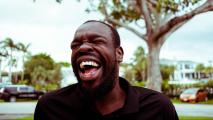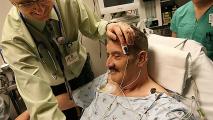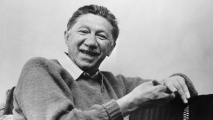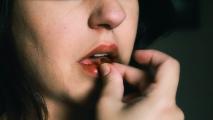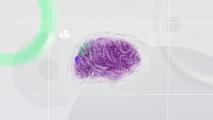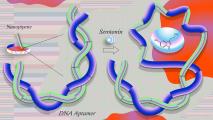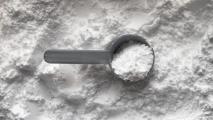Field: Mental Health
Pac-Man turned 45 today. The surgeon general once warned that playing it could make kids violent.
Officials' warnings about the impact of video games on kids were never proven true. They may be making the same mistake with social media.
How to reclaim meaning in a changing world
What if the barrier to a fulfilled life isn’t technology, it’s culture?
AI chatbots may ease the world’s loneliness (if they don’t make it worse)
AI chatbots may have certain advantages when roleplaying as our friends. They may also come with downsides that make our loneliness worse.
Why happiness is not the best indicator of well-being
Achieving values and pursuing growth is the real secret to a fulfilled life.
Beyond screen time: Rethinking kids’ tech use with the “Goldilocks hypothesis”
The "Goldilocks hypothesis" asks parents to think beyond screen time and consider the habits that teens build around technology use.
Potato chips or heroin? The debate on social media and mental health
Experts disagree on whether social media causes mental health issues in adolescents despite looking at the same data. Here's why.
How smart devices helped me unlock hidden health wins
By measuring many different body metrics, smart health devices can help support the mental game as much as the physical fitness gains.
Are weight-loss meds the next wonder drugs?
Evidence is mounting that GLP-1 agonists could treat many health issues — including ones that aren’t obviously related to weight.
Psychedelic drugs and the law: What’s next?
The push to legalize magic mushrooms, MDMA, LSD, and other hallucinogens is likely to heighten tensions between state and federal law.
How patients are using technology to kick-start a healthcare revolution
Susannah Fox, former chief technology officer for the HHS, explains how technology can empower a patient-led healthcare revolution.
How much stress is too much? A psychiatrist explains
Some stress is good for you, but toxic stress, on the other hand, wears down your stress response system in ways that have lasting effects.
Serotonin plays a key role in patience and impulse control, research says
Evidence suggests that there is in fact a neurological factor to the brain's ability to control impulses and manage patience.
Running or yoga can help beat depression, research shows – even if it’s the last thing you feel like
Exercise can be just as impactful in treating depression as therapy, but it matters what type of exercise you do and how you do it.
The 3 myths of mindfulness
Mindfulness is hugely popular today, but one philosopher has argued that certain unchecked types of mindfulness are deeply flawed.
Why is anxiety spiking in young people but not older adults?
Anxiety among adults 18 to 25 nearly doubled in that time period, but remained stable for adults 50 and older.
Scientists scrutinize happiness research
Scientists dig into the research on happiness and find there isn’t always sound evidence behind recommended strategies for achieving it.
Will AI companions help or hurt the “loneliness epidemic”?
About a third of people are lonely. Three scholars consider whether AI can help, or if it'll just make things worse.
The growing link between microbes, mood, and mental health
New research suggests that to maintain a healthy brain, we should tend our gut microbiome not through pills and supplements, but better food.
“Resilience”: How a genocide scholar faces history’s darkest moments
Genocide historian Omer Bartov says studying his particularly challenging subject has made him more mentally resilient.
Are anxiety and depression social problems or chemical disorders?
As antidepressants will soon be a $16B industry, the chemical imbalance theory suits business interests better than health interests.
How does Alzheimer’s disease erode memory? New findings on risk gene offer insights
The strongest genetic predictor of Alzheimer's disease is a variant of a gene called apolipoprotein E. Researchers are discovering why.
Research: inflammation and mortality may be caused by low “psychological well-being”
Researchers looked at the link between life purpose and mortality and found that people who felt they had no purpose in life tended to die earlier.
Your brain “wakes up” more than 100 times each night. That’s normal — and maybe good
Research suggests that brief, repeated “wake-ups” during sleep are completely normal, and may actually bode well for one’s memory.
Partnering up can help you grow as an individual – here’s why
The science makes it abundantly clear that couples with more self-expansion are better relationships. Here's why.
Why is the value of money for happiness increasing?
While the old adage says that money can’t buy happiness, studies have determined that the more your income increases, the happier you are.
Does caffeine harm your decision-making?
A small study showed caffeine lessens decision-making. While preliminary, it raises questions about caffeine affects our "higher" cognitive functions.
How music therapy benefits the autistic brain
While the benefits of music therapy are well known, more in-depth research explores how music benefits children with autism.
Your “circadian rhythm peak” can affect your mental performance
What’s your chronotype? Knowing whether you’re a night owl or an early bird could help you do better on tests and even avoid scams.
These 2 types of exercise can improve brain health in your 80s, new study finds
Older people who regularly engage in aerobics and strength training perform better on cognitive tests.
How do researchers study the prevalence of mental illnesses?
Data on mental health is essential to understand the scale of mental illnesses. How do researchers collect this data, and is it reliable?
What is brown noise? Can this latest TikTok trend really help you sleep?
Brown noise, the better-known white noise, and even pink noise are all sonic hues. But do any of them actually work?
Human sleep patterns appear to change with the seasons
Researchers observed the sleep of 188 subjects to see if their slumbers would change in duration and structure along with the seasons.
Want to feel better? Science says to care for your dog
Research shows that caring for your pets can improve your well-being, and that the act of caring provided more improvements than mere companionship
Solitude, without loneliness, can have mental health benefits
Spending some time alone (chosen or not) can be a chance to hit the reset button on your mental health — for the better.
How do stimulants actually work to reduce ADHD symptoms?
Stimulant drugs are thought to alter the activity of key neuotransmitters, dopamine and noradrenaline, in the brains of people with ADHD.
Bad trips: Study examines the long-term adverse effects of psychedelic drugs
New research suggests that some users face long-term difficulties following psychedelic use, including emotional and social challenges.
Mindfulness: New age craze or science-backed solution?
Research shows mindfulness can be an effective wellness practice, yet the effect sizes found in studies tend to be moderate.
Insomnia and mental disorders are linked, but exactly how is still a mystery
The relationship between insomnia and mental disorders is complex. It’s not just a case of “which comes first"?
A short history of insomnia and how we became obsessed with sleep
Insomnia is big business and getting bigger. When did sleep become so important, so elusive, and so expensive?
Cardio improves cognitive function & mental health. Here’s the best way to do it at home.
While many people do cardio exercise to keep physically fit, research shows cardio also improves cognitive function and mental health.
New brain implant for depression tested in people for the first time
A tiny brain implant designed for at-home neurostimulation has been demonstrated in people for the first time.
New research on deep brain stimulation shows biomarkers could help depression treatment
Deep brain stimulation can alleviate treatment-resistant depression for some patients, and could help doctors measure outcomes.
After studying 850 hours of footage, this paper offers 3 rules for a great conversation
Good conversations leave a lasting impression. They are rewarding and enriching. Here's how to have more of them.
A magnetic therapy for depression gains precision
Approved over a decade ago, transcranial magnetic stimulation (TMS) could be effective if the treatment was tailored to individual brains.
20% of Americans have anxiety. NYU expert’s “consciousness theory” explains why.
Sensations of anxiety evolved to protect us. This system goes awry when you perceive immediate danger that isn’t really there.
An ancient technique can improve your attention span
According to neuroscientist Amishi Jha, 12 minutes of mindfulness training a day strengthens your attentional systems.
Mental illnesses affect brain structure, but in surprisingly different ways
A new brain mapping study identified commonalities in the brains of people with mental illnesses, and it could lead to better treatments.
Almost everyone fears death — but not in the same ways
Fear of death may be the most primal, normal human fear, but it's one we all experience differently.
New clinical trial is testing a ketamine skin cream for PTSD
A topical ketamine treatment designed to alleviate the symptoms of PTSD without causing hallucinations has entered clinical trials.
4 ways to promote neurogenesis in your brain
Research from the 1960s proves creating new neurons as adults is possible, and modern-day research explains how to promote it.
Viktor Frankl: The doctor who prescribed the meaning of life to his patients
Not having a meaningful life can be dreadful, and one psychologist thought it was the root of many neuroses. His ideas became Logotherapy.
Newly identified type of depression affects 27% of patients
Stanford University researchers have identified a new, hard-to-treat type of depression characterized by problems with cognition.
Sooner or later we all face death. Will a sense of meaning help us?
An awareness of our mortality can, paradoxically, move us to seek – and, if necessary, create – the meaning that we so desperately crave.
Nasal drops might prevent PTSD
New research shows that nasal drops of neuropeptide Y triggers extinction of fear memories in an animal model of PTSD.
Brain scans hint that lonely individuals process the world differently
A study finds that the brains of people who score higher in loneliness react in unique ways when viewing video content.
The neurons that make us feel hangry
Researchers gave pinpointed a cluster of cells called AgRP neurons near the underside of the brain that may create “hangry” feelings.
Ketamine is as effective as ECT for depression, study shows
A trial of patients with treatment-resistant depression found ketamine to be at least as effective as electroconvulsive therapy.
Do we finally know what causes Alzheimer’s?
The first treatments proven to slow cognitive decline in Alzheimer’s are helping settle a decades-long debate about how the disease starts.
Depression treatment reverses “backwards” brain signals
Transcranial magnetic stimulation (TMS) appears to relieve depression by correcting brain signals that are traveling the wrong direction.
Psychedelic inspires discovery of two new drug candidates for depression
Researchers have found ibogaine-inspired compounds effective in treating depression and addiction in mouse models.
To be a happier, more successful person, get off the “hedonic treadmill”
Eudaimonic pursuits are outwardly focused, whereas hedonic activities are concerned with self-centered fulfillment.
3 key activities will make you “antifragile”
Resilience is vital for dealing with failure, and stems from three traits: self-esteem, psychological flexibility, and emotional regulation.
Amish gene study finds clues to mood disorders like depression and bipolar disorder
Researchers have turned to this unique genetic population to find insights into how our genes play a role in mental health.
Potential way to treat anorexia found in microbiome
New research links the gut microbiome, an ecosystem of viruses, bacteria, and fungi, to the development of anorexia nervosa.
LSD flashbacks and a psychedelic disorder that can last forever
LSD flashbacks have been studied for decades, though scientists still aren't quite sure why some people experience them.
More Americans than ever have no friends. Here are 5 steps to make more friends.
The last decade has seen a steep drop in adult friendships and a worrying increase in loneliness. Is this the cost of our modern life?
New Alzheimer’s drug slows cognitive decline by 35%
Eli Lilly’s new Alzheimer’s drug, donanemab, slowed cognitive decline by 35% in a phase 3 trial, but two people died from side effects.
The vicious cycle of food and sleep
More than a third of Americans don’t log enough hours in bed, provoking serious health impacts. Diet is an important, under-recognized reason.
Scientists discover “anxiety gene” in the brain — and a natural way to turn it off
The discovery of an "anxiety gene" — and a natural way to put the brakes on it — in mice could lead to new treatments for anxiety disorders.
Dignity therapy: Making the last words count
Guided conversations with the terminally ill are popular with patients, families and doctors. But are they truly beneficial?
LSD effective as major depression therapy in phase 2 trial
MindMed and University Hospital Basel have announced top line results for their phase 2 trial.
This man is trying to live underwater for a record-breaking 100 days
Biomedical engineer Joseph Dituri is attempting to break a world record by living in an underwater habitat for 100 days.
The case for viewing depression as a consciousness disorder
A new hypothesis explains depression as an altered state of consciousness, which could help researchers make an objective diagnostic test.
There is now a blood test for anxiety disorders
A new blood test for anxiety may be able to help doctors diagnose patients and find effective treatments for them more quickly.
Does online opioid treatment work?
A sudden shift to virtual health care has increased access — and possibly outcomes — for patients with opioid use disorder.
“Digital detoxes” don’t work. Try these 4 skills instead
Digital distractions have become a ubiquitous part of work and life. But these distractions begin with emotional discomfort.
Exercise is even more effective than counselling or medication for depression
A recent study showed exercise is an effective way to treat mental health issues – and can be more effective than medication or counselling.
Psychedelics are helping dying patients overcome their existential distress
End of life patients face existential and spiritual challenges other patients do not. Psychedelics may be uniquely suited to helping them.
Yoga: Modern research shows a variety of benefits to both body and mind from the ancient practice
Researchers have begun to study yoga's effects and are finding that it has great benefits for both mental and physical health.
DMT therapy appears effective for depression in phase 2 clinical trial
London-based Small Pharma has released positive top-line results for their phase 2a trial of DMT as an antidepressant.
Mindfulness can slow down the brain’s aging and more
The benefits of practicing mindfulness carry over into everyday life – even when you aren’t actively meditating.
Study suggests that exercise should be prescribed to mental health patients
Researchers concluded that exercise should be prescribed to patients with mental health issues before psychiatric drugs.
The “recovery paradox” explains why you’re burnt out
There's regular job stress, and then there's uncertainty, dread, and constant change. Here's how to actually recover from it.
Researchers have developed a way to “decode” depression
Baylor College of Medicine researchers have developed an electrode-based “mood decoder” capable of mapping brain activity to mood.
How exercise changes your brain biology and protects your mental health
A psychiatrist and neuroscientist began to think of prescribing exercise as telling patients to take their “exercise pills.”
Anxiety treatment in early childhood can lower long-term mental health risks
Some anxiety is normal and, in fact, necessary and helpful. But what happens when it interferes with a child's daily functioning?
A new class of antidepressant works in 2 hours
Most types of antidepressants work by increasing neurotransmitter levels throughout the brain, which take weeks. A new drug takes hours.
Parents: Don’t focus on happiness, help build resilience instead
Happiness emerges from resilience, which helps children regulate difficult emotions and stressful situations.
Exercise boosts the brain — and mental health
New research is revealing how physical activity can reduce and even ward off depression, anxiety and other psychological ailments.
The science of habits
Whether you’re trying to break a bad habit or start a good one, psychologists have some tips to get you started.
Study finds mindfulness as effective as medication for anxiety
An intensive form of mindfulness was found as effective as Lexapro in treating anxiety in adults in the first head-to-head comparative study.
“Laughing gas” may offer quick, long-lasting relief from depression
With ketamine showing potential as an antidepressant, researchers investigate another anesthetic: nitrous oxide, or "laughing gas."
It’s time to change how we think about electroshock therapy
Electroconvulsive therapy is more effective than ketamine at treating severe depression, according to a new meta-analysis.
The missing apex of Maslow’s hierarchy could save us all
In his later years, psychologist Abraham Maslow added a new apex to the pyramid of human needs: self-transcendence.
Withdrawal symptoms from antidepressants can last over a year
A scientific review found that withdrawal symptoms from antidepressants and antipsychotics can last for over a year.
Deep brain stimulation can be life-altering for OCD sufferers when other treatment options fall short
Deep brain stimulation relies on thin electrodes implanted deep in the brain that deliver electrical currents. Could it treat OCD?
Shape-shifting DNA is helping researchers decode the human brain
Researcher Nako Nakatsuka has turned to DNA to tackle an important challenge: how do we measure chemicals in the brain?
Creatine, a popular exercise supplement, might help treat depression
Creatine shows promise as a treatment for depression, boosting the effects of SSRIs and potentially working as a standalone medication.

